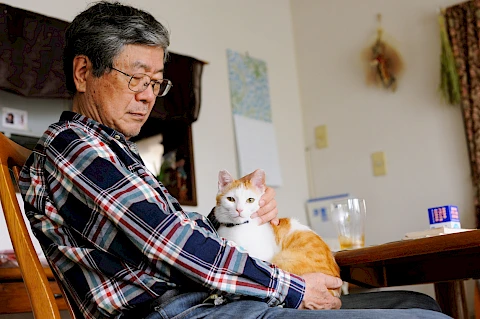
Living with Parkinson's disease can be challenging, particularly for seniors who may face both physical and emotional difficulties. This progressive neurological disorder often affects movement, balance, and coordination, while also impacting mental well-being. Feelings of isolation and depression can become more prevalent as mobility declines. However, alternative therapies offer promising ways to enhance quality of life. One such approach is pet therapy.
Pet therapy, or animal-assisted therapy, involves interacting with animals to achieve specific therapeutic goals. It has become increasingly popular as a complementary treatment for various conditions, including Parkinson's disease. By exploring pet therapy, seniors can find a unique and enjoyable way to improve their lives.
How Pet Therapy Works
Pet therapy involves guided interactions between a person and a trained animal. The goal is to help improve physical, emotional, and social well-being. Common animals used in pet therapy include dogs, cats, and even more exotic animals, such as birds or rabbits. These sessions are typically conducted under the supervision of a professional, ensuring safety and effectiveness.
Emotional Benefits of Pet Therapy
Interacting with animals during pet therapy sessions can significantly boost mood and reduce feelings of depression. Simple acts, such as petting a dog or stroking a cat, can trigger the release of endorphins, the body's natural mood enhancers. These interactions also reduce stress and anxiety, fostering a calming effect that enhances emotional well-being.
Beyond emotional support, pet therapy encourages physical activity. Activities like playing fetch or walking a therapy dog help seniors stay active, improving cardiovascular health and motor coordination. Even small movements, such as reaching to pet an animal, can help maintain flexibility and hand-eye coordination.
Social and Cognitive Benefits
Social interaction plays a vital role in maintaining mental health, especially for seniors at risk of isolation. Pet therapy sessions naturally encourage social engagement as therapy animals often attract attention, sparking conversations with others. This increased interaction can help reduce feelings of loneliness and foster stronger connections.
On the cognitive side, caring for or interacting with animals stimulates brain function. Remembering an animal's name or discussing its behavior can sharpen memory and enhance communication skills, making pet therapy an enjoyable and mentally stimulating experience.
Choosing the Right Therapy Animal
Selecting an appropriate therapy animal is crucial for the effectiveness of pet therapy. When choosing between dogs, cats, or other animals, consider the senior's preferences and mobility needs. Calm and gentle animals are often ideal for those with Parkinson's, as they provide comfort without posing a risk of accidental injury. Consulting with a professional can help make the right choice.
Enhance Quality of Life With Pet Therapy
Pet therapy can significantly enhance the lives of seniors with Parkinson's disease. The positive impacts are profound, from boosting mood to encouraging physical activity and social interaction. If you or a loved one is considering pet therapy, contact Senior Helpers Northern Kentucky. We proudly serve Northern Kentucky, Florence, Edgewood, and Union with personalized Parkinson's care services that include support in exploring therapeutic options. Contact us to learn how we can help enhance your loved one's well-being.